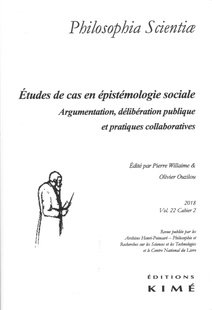Abstract
English
In this paper, I intend to describe the evolution of Weyl’s philosophy of physics during the period 1918-1927. In particular, I will recall that he developed different versions of “apriorism” between 1918 and 1923: first a so-called “speculative” apriorism associated with his unified field theory (1918-1921) and second a conception of a priori knowledge mainly inspired by Husserl’s Wesensanalyse with his work on the problem of space (1921-1923). I will also show that Weyl’s “holism”—i.e., the thesis according to which only a physical theory as a whole can be subject to empirical tests—came to the forefront in 1924-1925 in texts on the foundations of mathematics. This holism is closely related to his definition of a physical theory as a symbolic construction of reality. Finally, I will characterize Weyl’s holistic viewpoint by comparing it to the thoughts developed by Cassirer, Einstein and Hilbert around the same time.
Outline
- 1 Introduction
- 2 Weyl’s speculative apriorism under debate (1918-1921)
- 2.1 A characterization of Weyl’s early “apriorism”
- 2.2 The Freundlich-Haas-Reichenbach-Weyl controversy
- 3 A refinement of Weyl’s apriorism between 1921 and 1923
- 3.1 A non-Kantian use of Kant’s vocabulary
- 3.2 An explanation for Weyl’s constructivist interpretation of Husserl’s Wesensanalyse
- 4 Weyl’s holism and physical theories as symbolic constructions of reality
- 4.1 Some important concessions to Hilbert in theoretical physics
- 4.2 Duhem, Einstein, Weyl and the relativization of apriorism
- 4.3 Cassirer and Weyl on symbolic constructions
- 5 Concluding remarks






